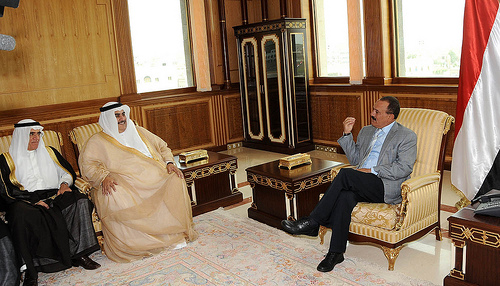Yemen Votes Out Saleh

Analysts warn that the country must address its people's problems instead of continuing a military crackdown, said USA Today.
The new president, Abd-Rabbu Mansour Hadi, previously served under Saleh and is expected to contract a power-sharing deal with Saleh's political opponents, according to Reuters. Amidst the change of power, the country remains a state of chaos, with Yemen subject to a weak economy, a rebellion in the north, separatism in the south, and a strong al Qaeda presence.
Under Saleh's 33-year rule, the country faced violent conflict. Saleh turned security forces on peaceful protestors calling for democracy and killed dozens, according to the New York Times.
The new election spurred similar violent acts throughout the country. In Aden, four people were killed and 14 injured in a conflict between gunmen and security forces, said CNN. One soldier was killed in Mukalla and four wounded when polling centers were overrun.
The Obama administration supported Saleh's removal from power, but still need to convince Hadi to halt conflict with the south and listen to its citizen's complaints. People of the south have raised concerns over unfair political representation and economic rights to rid the region of al-Qaeda, said USA Today.
According to Bruce Riedel, a former CIA analyst, al-Qaeda "wants the chaos to continue, so it can continue to grow. It's going to require a lot of coaxing effort, an enormous amount of Saudi money to grease the skids and American support to help make it happen."
President Obama pledged an increase in support Monday on the condition that Yemen's government quickly restructures its military forces. The Obama administration said it will increase its monetary contributions and solicit help from other international donors to help aid the country with projects including education, health, and improvements in electrical and water supplies, according to the Washington Post.
Reach Amanda Martinez here
Follow Amanda Martinez on Twitter



